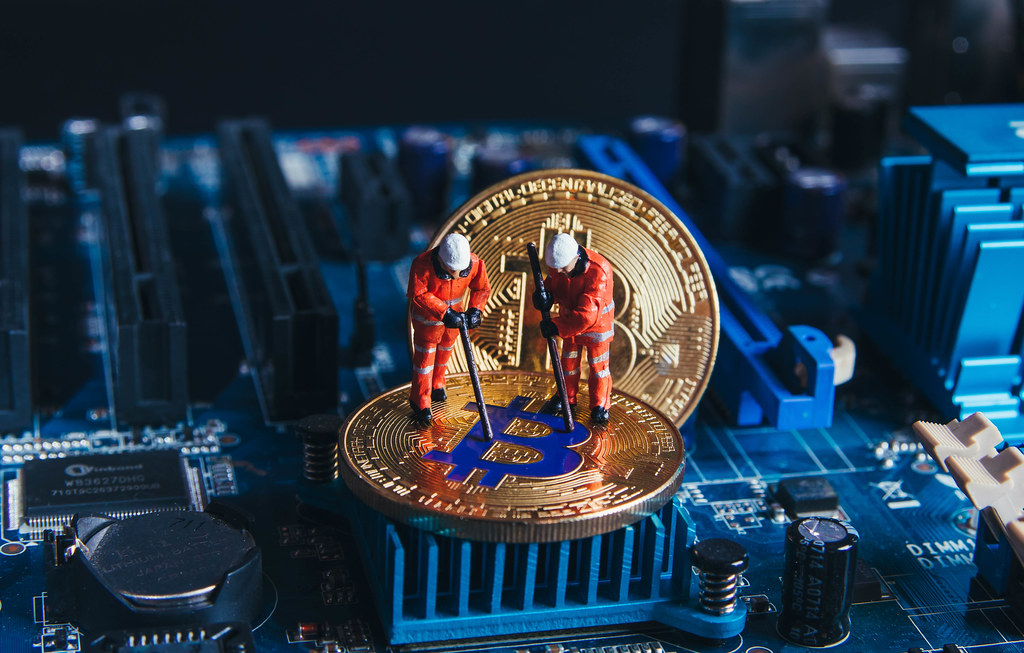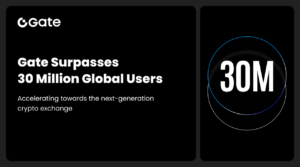Crypto Mining: Crucial Information to Get Started

The term “mining” has been used for centuries to define the process of extracting natural resources. When it comes to cryptocurrencies, it is not used in a literal sense but refers to how those valuable stones and minerals are discovered. So, what does it mean to mine crypto and how does it actually work?
Mining is a process of creating new crypto coins. People who mine cryptocurrencies are known as miners. They use advanced machines to solve complex mathematical puzzles in order to validate transactions and add them to the blockchain. In return, they get rewards for the work they contributed, which maintains and secures the network.
Understanding crypto mining
In the early days most miners used their personal computers for mining cryptocurrencies. But after years of expansion the whole process became more demanding. It now requires advanced hardware that is extremely power-hungry and generates high electricity costs. So, mining on personal computers by solo miners is no longer worthwhile.
The growth of cryptocurrencies has been attracting the attention of big corporations, and with it comes greater investments in crypto mining farms. Such farms are mostly made of warehouses full of ASIC machines designed specifically to mine crypto in an industrial scale.
Each cryptocurrency uses a unique cryptographic algorithm. So, to mine coins, an ASIC machine developed for that specific algorithm is required. However, this does not mean that one machine can mine only one cryptocurrency. It is designed to mine several different coins that use the same algorithm. For example, an ASIC machine used to mine Bitcoin can also mine Bitcoin Vault because both use the SHA-256 algorithm.
ASIC machines were first introduced in 2013 and soon became the most powerful devices on the market. They could mine any cryptocurrency ranging from Bitcoin to altcoins like Litecoin, BTCV or Dash.
Some of the most popular ASIC miners on the market are:
For cryptocurrencies using the SHA-256 algorithm
Bitmain Antminer S19 Pro (110 Th)
Bitmain Antminer S19
MicroBT Whatsminer S30
Bitmain Antminer T19
Canaan AvalonMiner 1246
MicroBT Whatsminer M30S+
For cryptocurrencies using Ethash, Equihash, or Cryptonight V7
Innosilicon A10 Pro+ ETHMiner (750 Mh)
Innosilicon A10 Pro ETHMiner (500 Mh)
PandaMiner B3 Pro 8G
Bitmain Antminer E3 (190 Mh)
PandaMiner B5 Plus
Bitmain Antminer G2
How does crypto mining work?
Cryptocurrency mining is a process where transactions are validated and added to the blockchain. It is divided into two parts. During the first one, complex mathematical puzzles are solved, and transactions are validated within a particular block. During the second, the block is added to a blockchain to earn a reward.
To ensure that all transactions occurring on the network are genuine and all participants agree on the status of the blockchain, cryptocurrencies are mined using consensuses mechanisms. Among the most popular ones is the process of Proof of Work.
What is Proof of Work?
Proof of Work (PoW) is the most popular consensus mechanism and the foundation of many open blockchains that offer rewards. It is primarily used for mining crypto, as it treats everyone equally. The cryptographic functions it uses guarantee that a certain number of computer cycles is completed to solve the mathematical puzzle. Therefore, proving that the miner did some work to solve the puzzle, hence the term Proof of Work.
This form of crypto mining is power intensive and quite expensive due to the large amounts of electricity used.
Development of mining pools
As demand for cryptocurrencies rises and many high-tech mining machines compete to solve mathematical puzzles, the mining process gets more difficult. To overcome these obstacles, individual miners join forces to form mining pools.
Mining pools are groups of miners who combine their resources to mine new coins. The rewards are shared accordingly to the volume of work each miner contributes, but the chances of getting one increase significantly. Mining in pools gives individual users a chance to compete against miners using advanced equipment.
Benefits of joining a mining pool
One of the purposes of crypto mining is to generate new coins and earn rewards for the work done. However, as mentioned earlier, it is almost impossible for solo miners to solve complex puzzles and earn rewards. So, the biggest advantage of operating within a mining pool is that it increases the probability of generating a new block and receiving a reward.
A mining pool allows crypto enthusiasts to cut costs as they no longer need to get expensive mining equipment and worry about high electricity bills. These costs are significantly reduced because they are shared.
Joining a company like Mining City ensures that everything is taken care of. One does not need to worry about mining equipment, hardware maintenance, technicalities and electricity costs. It is enough to pick a plan with enough hash power to efficiently mine cryptocurrencies and see how the whole process progresses. Participants may also expand their network through direct marketing efforts and enjoy additional benefits.“In 2019, we created the Mining City platform, which allows participants to purchase a mining plan and start mining the cryptocurrency of their choosing,” says Greg Rogowski, founder and CEO of Mining City. “We provide people with the much-needed hash power. This is happening through shared mining equipment located in an off-site data center.
How to choose the right mining pool?
Before joining any mining company or pool, do your research. Stay clear of websites promising fast and sure returns. Reputable communities like Mining City never tell you that their plans will help you get rich. Instead, they share materials about cryptocurrency mining, coins and tokens, so that you can make informed decisions.
Always remember that if something looks too good to be true, it probably is a scam. Do not jump into any mining scheme and choose wisely.
While you check the credibility of a mining pool or company, make sure you also go over the following:
Past performance. Has the mining pool earned rewards? This can be easily verified on the blockchain explorer. Check the company’s record of block rewards.
Consistency. Is the company consistent in earning rewards and issuing payouts?
Fees. Some mining pools impose high fees. This means you won’t be getting much in rewards.
Payout frequency. Check the frequency of payouts to make sure you will receive your coins and rewards regularly.
Cryptocurrency mining allows crypto enthusiasts to get potential rewards for verifying transactions and generating new blocks. However, before getting into mining, it is essential to do extensive research to avoid unpleasant surprises and reap full benefits. Last, but not least, it is worth to remember that the cryptocurrency market is volatile. If you decide to participate in mining, be aware of the risks.








